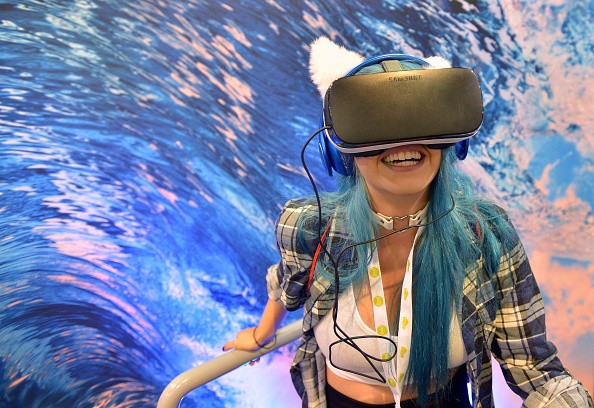Meta just implemented so-called "safety bubbles" for avatars in the metaverse in an attempt to curb virtual groping.
According to a report by BusinessInsider, the safety bubbles will measure around four feet in diameter and will be surrounding an entire avatar, so other people's avatars wouldn't get too close. Meta calls this feature Personal Boundary, which they launched last Friday, January 4th.
Anyone who tries to "invade" your avatar's personal boundary will be stopped in their tracks. As per the official blog post on the Oculus website, the boundary won't have any haptic feedback.
For those who might be worried that this feature might be used by griefers, don't worry. Meta assured that the feature cannot be used to block entrances for giggles as it will still allow avatars to pass each other, as reported by The Verge.
It also cannot be turned off at will, as Meta designed it according to their "existing hand harassment measures," which were already in place. For the unaware, these harassment measures involve avatars' hands disappearing if they get too close to another person's avatar.
The Personal Boundary feature, according to Meta, is designed to help "set new norms for social VR."
For now, it is expected that the feature will be further improved within the foreseeable future. Meta claims that they're constantly working to improve people's VR experiences by gathering community feedback.
This new feature comes two months after the VR social platform Horizon Worlds finally opened to the public last year, after a long beta testing period. It was reported that during the beta test, one user said her avatar was "virtually groped" by a stranger.
But this isn't really the first time that such a feature has been implemented within the virtual reality space. Other platforms like VRChat and Rec Room already have such measures in place, though the only difference is that the feature can be turned off at will.

Read also: A Metaverse of Wonder: The Future of Internet Scalability or a Marketing Buzzword for the Ages?
Will Meta's Personal Boundary Feature Be Enough?
The metaverse is still a relatively young concept, but it already suffers from virtual harassment problems. As such, one might think about the effectiveness of such a feature, considering how similar ones that currently exist aren't too effective themselves.
However, is sexual harassment in VR even actual harassment at all? According to Technology Review, yes, it is. However, many people were arguing that the lack of physical touch says otherwise. But this isn't what Prof. Jesse Fox from Ohio State University believes. According to her, harassment can always be verbal, physical, and virtual, and it's something that people always need to keep in mind.
This doesn't stop detractors from calling things out, though. When reports of the virtual harassment on the Horizon Worlds beta tester came in, some pointed out that it was a "pathetic cry for attention," as reported by USAToday. Some even urged her not to pick a female avatar next time to prevent it.
However, whether Meta's new feature will be enough to curb such behavior remains to be seen.
This article is owned by Tech Times
Written by RJ Pierce
![Apple Watch Series 10 [GPS 42mm]](https://d.techtimes.com/en/full/453899/apple-watch-series-10-gps-42mm.jpg?w=184&h=103&f=9fb3c2ea2db928c663d1d2eadbcb3e52)



